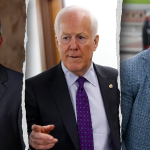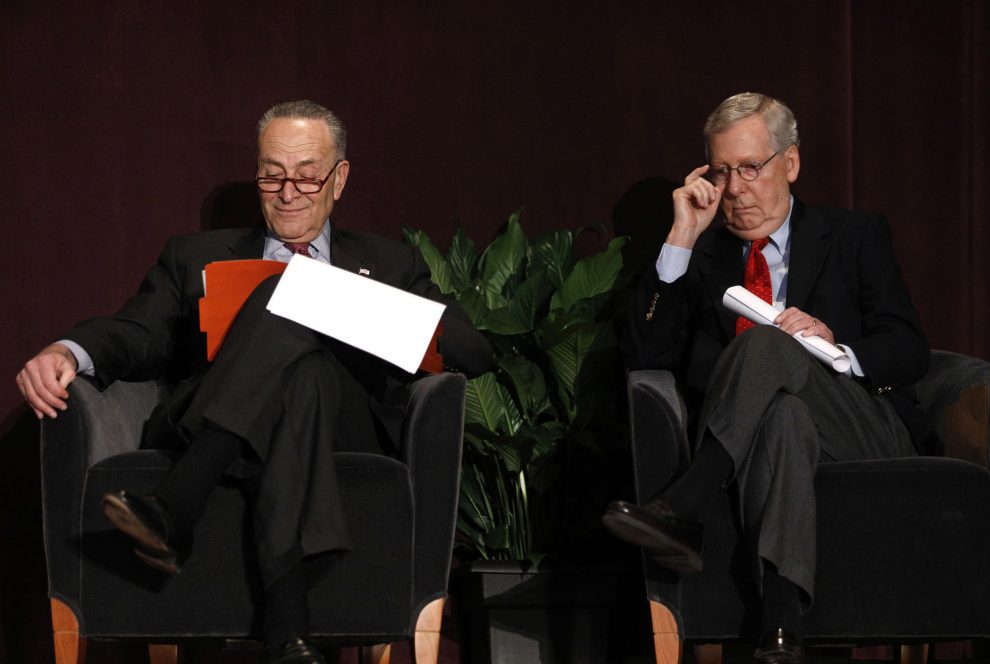Democrats are trying to come up with another way to raise the debt limit after Republicans blocked their latest effort Tuesday. The U.S.is now heading toward default in just a few weeks, which could have catastrophic economic consequences, government officials and economists warn.
Senate Majority Leader Chuck Schumer on Tuesday called for unanimous consent from the Senate to hold a vote to increase the debt limit with just a simple majority of senators. He argued Republicans have been insisting Democrats act alone to raise the debt limit, so a unanimous consent vote fulfills that demand. But Senate Minority Leader Mitch McConnell objected — forcing Democratic lawmakers to come up with another plan.
“There is no chance, no chance the Republican conference will go out of our way to help Democrats conserve their time and energy, so they can resume ramming through partisan socialism as fast as possible,” McConnell said.
Treasury Secretary Janet Yellen told Congress early Tuesday, the government would be unable to pay its bills if Congress does not act by October 18.
Democrats had already tried including a provision to suspend the debt limit until December 2022 in the short-term spending bill known as a continuing resolution, which would fund the government into this December. But that legislation was blocked by Republicans on Monday night.
Democrats may have to put the debt limit provision in the budget reconciliation bill making its way through Congress, the move that McConnell suggested back in July as the suspension of the debt limit expired.
But Schumer rejected the idea on Tuesday, saying “going through reconciliation is risky to the country and is a nonstarter.” He described the process of using reconciliation to address the debt limit as long, convoluted and difficult, noting that it “ping-pongs” between the House and the Senate and can’t be done by just adding an amendment.
To include the debt limit in the reconciliation bill, Democrats would have to go back and revise their budget resolution to include raising the debt limit, a move that faces both political hurdles and poses timing challenges with their current agenda.
House Majority leader Steny Hoyer on Tuesday afternoon tweeted that he was asked about reconciliation as an option to address the debt limit but that it was “certainly not the best option, nor the option we’re pursuing.” Later in the day, Hoyer told reporters that it was “possible” the House might hold two separate votes, one on the debt ceiling and one on the continuing resolution to keep the government running. He suggested the measures might originate in the Senate.
Though Republicans are refusing to help address the debt limit, they also say the country must not go into default.
“Of course the debt ceiling has to be raised. They have a way to do it,” McConnell said earlier Tuesday.
Raising the debt limit allows the federal government to pay its debt obligations, not new spending. While Republicans are attempting to derail the Democrats’ $3.5 trillion reconciliation package, even without new spending, the debt will continue to mount due to past legislation including bipartisan COVID relief, as well as the Republican 2017 tax cuts.
Story cited here.
























